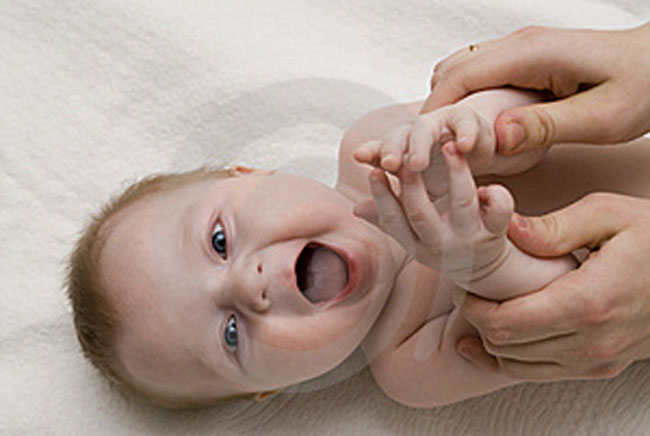Bilingual Babies Get an Early Edge

Get the world’s most fascinating discoveries delivered straight to your inbox.
You are now subscribed
Your newsletter sign-up was successful
Want to add more newsletters?

Delivered Daily
Daily Newsletter
Sign up for the latest discoveries, groundbreaking research and fascinating breakthroughs that impact you and the wider world direct to your inbox.

Once a week
Life's Little Mysteries
Feed your curiosity with an exclusive mystery every week, solved with science and delivered direct to your inbox before it's seen anywhere else.

Once a week
How It Works
Sign up to our free science & technology newsletter for your weekly fix of fascinating articles, quick quizzes, amazing images, and more

Delivered daily
Space.com Newsletter
Breaking space news, the latest updates on rocket launches, skywatching events and more!

Once a month
Watch This Space
Sign up to our monthly entertainment newsletter to keep up with all our coverage of the latest sci-fi and space movies, tv shows, games and books.

Once a week
Night Sky This Week
Discover this week's must-see night sky events, moon phases, and stunning astrophotos. Sign up for our skywatching newsletter and explore the universe with us!
Join the club
Get full access to premium articles, exclusive features and a growing list of member rewards.
Bilingual parents and the experience of hearing two languages may give babies an early learning advantage — and all before they know how to speak.
A new study shows that bilingual babies quickly adapt to different learning cues at seven months old compared with babies from single-language households. The findings may lead researchers to rethink how hearing two languages trains the young brain, even before babies have learned how to formulate words.
This early learning advantage may not necessarily translate into higher intelligence later on in life. But it does reveal that babies benefit early on from having bilingual exposure, when they themselves still babble nonsense.
"We believe that the enhancement is due more to perception at this age, rather than [language] production," said Jacques Mehler, a cognitive neuroscientist at the International School for Advanced Studies in Trieste, Italy.
Scientists have known that babies begin absorbing some language fundamentals before they can speak, and that babies can tell the difference between sounds from two sufficiently different languages. Previous studies have also shown that regularly using two languages improves some thinking processes among both children and adults.
However, few if any other studies have compared the cognitive functions of bilingual and monolingual babies at a very young age. Mehler and fellow researcher Agnes Kovacs recruited "crib bilinguals" from families in the Trieste area of Italy, where parents spoke to infants from birth using both Italian and Slovenian mother tongues.
The researchers taught bilingual and monolingual babies to look at one side of a screen in anticipation of a visual "reward" image of a puppet, after the infants first learned to associate a sound cue with the image. The visual treat was then switched to the other side of the screen, so that researchers could see how quickly babies would learn to switch their anticipatory look to that other side.
Get the world’s most fascinating discoveries delivered straight to your inbox.
Bilingual babies beat out monolingual babies in three such experiments, even when the sound cues changed from nonsense syllable combinations to a structured sound cue, and then a visual cue. In all three cases, bilingual babies soon learned to switch their anticipatory attention to the other side of the screen, whereas monolingual babies never adapted.
This clearly showed a bilingual baby advantage in thinking that involved so-called executive function, which helps regulate abilities such as being able to start and stop actions. It also indicated that having early bilingual exposure could train the mind in a more general sense, rather than just a language-specific sense as some researchers had suggested.
"These babies don't know how to speak yet," Mehler told LiveScience. "No one can attribute knowledge of two languages to them."
Whether this early learning advantage translates into later benefits for bilingual babies remains uncertain. Mehler pointed out that enhanced executive function does not necessarily translate into better intelligence — and in any case, monolingual babies have plenty of opportunities later to exercise executive function.
"My conclusion is that it's a very particular component of our cognitive toolbox, and early learning certainly has no negative effect," Melher said. But despite suggestions from other researchers, he personally doubted whether such early bilingual training leads to improved IQ or better test scores.
Full study results appear in the April 13 issue of the journal Proceedings of the National Academy of Sciences.
- Video - Learning Music Easier for Kids
- Why Are 'Mama' and 'Dada' a Baby's First Words?
- All About Babies
 Live Science Plus
Live Science Plus











